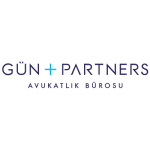Turkey’s first official diagnosis of COVID-19 was announced on March 11 2020. Since then, the country has experienced lockdowns, quarantines, travel bans and limited access to public services at various levels, depending on the progress of the pandemic. There were months where the legal and administrative bodies’ effectiveness was inversely proportional with the curve of pandemic, which affected all governmental agencies.
Incidentally, brand enforcement activities were also heavily affected, especially during the second and third quarters of 2020. However, by the end of the year, most workplaces eventually became used to operating in the ‘new normal’. This article summarises how the pandemic has affected the enforcement of trademark rights in Turkey so far, and considers whether some steps taken by the authorities could be labelled as the ‘silver linings’ of the pandemic.
Civil and criminal proceedings
At the beginning of the pandemic, the Ministry of Justice and the judicial bodies of Turkey reacted swiftly by prioritising public health concerns. Businesses and law firms experienced suspensions of deadlines for months, adjournment of hearings, and even total closures of courts, which subsequently led to considerable delays in proceedings.
With a law that was published in the Official Gazette early during the pandemic, all terms and deadlines specified under the Administrative, Civil and Criminal Procedural Codes, as determined by the judges and mediators, were announced to have been suspended. The courts initiated a ‘flexible’ working arrangement, which meant that the majority of the judges, prosecutors and the clerks were working remotely. They ceased all work that was considered to be non-essential and non-urgent, while courthouse workers over the age of 60 were put on administrative leave.
Although the rules accepted that urgent matters were to be handled as usual, defending and enforcing IP rights through civil courts have been much more challenging during the pandemic, especially during the beginning. As the number of specialised IP courts itself is limited in Turkey, judges were mostly unavailable during the early stages of the pandemic and the non-specialised judges, with rather limited understanding of brand enforcement who were on duty, were hesitant to grant preliminary injunctions.
Following the regular judicial break in August, courthouses became safer for regular staff, judges and lawyers, with additional precautions taken by the Ministry of Justice. The courts started working as usual and hearings were held without further delays, while deadlines were all restored. There were no further issues concerning preliminary injunctions or other urgent claims, such as the determination of evidence proceedings, apart from some delays that should be considered normal under the exceptional circumstances of a pandemic.
During the initial phase of the pandemic, a similar problem had occurred in the criminal enforcement of IP rights. While it was indeed possible to file complaints and seek search and seizure decisions before the courts on duty, the unavailability of criminal judges and prosecutors and the heavy workload of the police due to the pandemic, caused an issue for the brand owners combatting against counterfeits. The raids became difficult to organise, but the increased public demand for fast-moving consumer goods (FMCG) and for hygiene products, disinfectants, detergents, protective materials and of course – medicines – was an ‘opportunity’ for counterfeiters to operate and inadvertently create a high public health risk.
The pandemic increased the concerns of the authorities and created a broader understanding of public health provisions in local laws. With the encouragement of brand owners, local authorities and the police have increased the number of ex officio actions they take based on health-related provisions. These actions were then backed-up by brand owners relying upon provisions of the IP law, which provided a better tool against counterfeits with stronger allegations and indictments.
A decision of the Ministry of Justice is also worth noting here. In Turkey, the lawyers can access court files through an online judicial system called the National Judiciary Informatics System (NJIS) – and the Ministry of Justice gave lawyers broader access powers to the NJIS on April 5 2020 based on the necessities of the pandemic. Before that date, the files of the prosecutor’s offices were not available to lawyers who act as the brand owners’ representatives, or even where they are the appointed lawyers for the accused, as the criminal prosecution was confidential. However, since the change, lawyers have access to the files not only during the court trial phase, but also during the criminal prosecution phase as well.
While in time, it became safer to be back at the courthouses, the judicial break of 2020 in the summer provided an opportunity for further regulation of remote hearings for better protection against the pandemic. Law 7251 that was published in the Official Gazette on July 28 2020 amended the Civil Procedure Code (CPC) to allow courts to conduct remote hearings through video and audio transmission, either upon the parties' request or ex officio under certain circumstances.
The remote hearing concept has been available in Turkey since 2005 for criminal trials, and since 2011 for civil trials. However, before Law 7251, the CPC stipulated that the courts could allow parties and their attorneys to attend hearings and carry out judicial proceedings remotely through video and audio transmission and allow witnesses, experts, private experts and parties to be heard outside the courtroom during the hearing – all provided that the parties had consent to do so. Law 7251 has removed the consent requirement on these aspects and set forth the details that make remote hearings much simpler and more available. This is considered as an important gain by legal professionals. The specialised IP courts have also started holding e-hearings for some and this is expected to become much more common soon.
Customs proceedings
Brand enforcement efforts during customs proceedings has also become highly important as a result of the pandemic. Initially, customs’ work experienced a decline, mainly due to the economic struggles of people resulting from pandemic-related precautions. Yet, trade at the customs came alive soon, and officials reacted quickly. It would be fair to say that the customs administrations eventually became among the most effective bodies of Turkey during the pandemic, as they adapted themselves to the needs of brand owners swiftly.
They started allowing brand owners to take actions remotely, by sending them photos of suspected products and the details of the shipments, and accepted the seizure decisions of the courts via e-mail as well. This has not only allowed for quicker actions but has also decreased the risk of exposure to the virus. Likewise, customs officials were keener to arrange and attend trainings to be organised by brand owners, as those had become online-based and less time-consuming.
Proceedings before the Trademark Office
The Turkish Patent and Trademark Office performed very well during the pandemic. The office largely went paperless within the last few years and by the virtue of the newly introduced electronic system EPATS, just before the pandemic, the work for brand owners was almost unaffected.
The office also applied remote and flexible working systems for employees, which positively affected the productivity of employees, as reported by the president of the office in an official webinar.
Lessons learnt
COVID-19 marks the first – but probably not the last - worldwide challenge of this century that everyone has had to endure, and lessons have been learnt on the importance of acting and adapting together. The pandemic is not over, though it has already shown that change is necessary and inevitable in many aspects of life, and it will likely cause various paradigm shifts when it is completely over.
In regard to its effect on brand enforcement, it would be fair to say that the steps taken by the judicial and administrative bodies for the better enforcement of trademark rights, have so far been mostly useful. Some of these were long-awaited – such as the possibility of reaching prosecutor’s files online, and some were on hold for a long while – such as easing restrictions on remote hearings, but all were much needed and hopefully this will continue after the pandemic ends.
Read Gün + Partners' patents-related article as a part of the Future of IP—Turkey series: First precautionary injunction granted to prevent indirect use of a drug patent
Uğur Aktekin |
|
|---|---|

|
Partner Gün + Partners T: +90 212 354 00 22 Uğur Aktekin is a partner at Gün + Partners. He joined the firm in 1999 and became a partner in 2003. He is co-chair of the firm’s IP practice and the technology, media and telecom industry practice. Uğur’s IP practice focuses on trademarks, designs and copyrights. He advises on implementing IP protection and enforcement strategies and portfolio management, representing clients before the Turkish Patent and Trademark Office. He also acts on cancellations, infringement and other court actions and domain name ADR proceedings, filing for interlocutory and precautionary injunctions, negotiating and drafting co-existence, settlement and licensing agreements. He often represents clients involved in anti-piracy campaigns, civil litigation, criminal raids and litigation involving software copyrights. Uğur holds a bachelor’s degree in law from Istanbul University and a LLM from Bilgi University. |
Zeynep Seda Alhas |
|
|---|---|

|
Partner Gün + Partners T: +90 212 354 00 40 Zeynep Seda Alhas is a partner at Gün + Partners. She joined the firm in 2006 and became a partner in 2017. She is both a lawyer and a trademark attorney specialising in IP law. She focuses on trademark and design, anti-counterfeiting, and copyright. Zeynep’s IP litigation practice focuses on trademarks, designs, unfair competition and copyrights. She advises a wide range of foreign and domestic clients on implementing IP protection and enforcement strategies. She has vast experience in civil IP litigation, as well as domain name and unfair competition conflicts, representing clients in cancellation, invalidation, infringement and civil court actions among other areas. She advises on portfolio management strategies and represents clients before the Turkish Patent and Trademark Office (TPTO), and supervises opposition and appeal procedures for trademark, design and well-known trademark applications to the TPTO. Zeynep holds a bachelor’s degree in law from Galatasaray University. |












